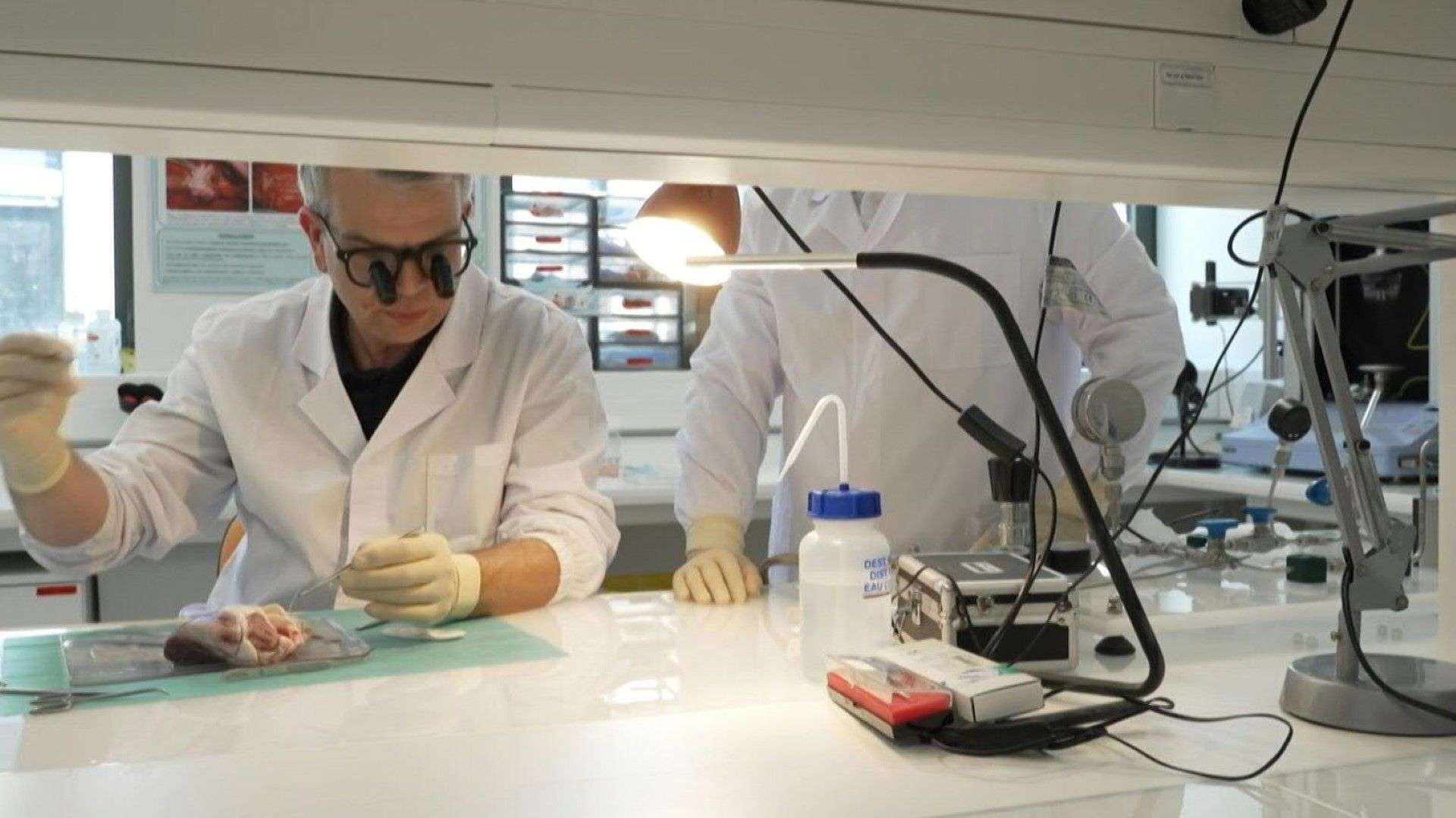The older you get, the more likely you are to develop cancer. But this probability decreases after the age of 80, and if you haven't had cancer before that age, it's likely that you'll never get it in your life, even if you stay alive for decades. This astonishing paradox has just been explained by researchers at Memorial Sloan-Kettering Cancer Center in New York. In an article published in the journal Nature On December 4, 2024, they showed that this late protection is due to a blockage of cell growth, caused by poor iron uptake by cells.
Tumor progression is blocked in very old mice
To study the speed of progression of cancer as a function of age, the authors used mice genetically modified to develop lung cancer. To do this, they induced mutations specifically in progenitor cells (like stem cells but which can become a single cell type) which will then become alveolar cells (or pneumocytes, which cover the pulmonary alveoli). This manipulation was carried out in young mice (12 to 16 weeks) and very old mice (104 to 130 weeks), in order to compare the speed of progression of tumors thus generated.
These tumors appeared and grew much faster in young mice than in older mice. In the latter, even the initiation of tumors seemed to be blocked. This blockage did not only affect cancer cells, but also healthy progenitor cells, which were no longer able to divide or become alveolar cells.
Read alsoBrain tumor: CAR-T cells could even prevent recurrences
This blockage is caused by a lack of iron
To understand the origin of these growth problems that affected healthy cells as much as cancer cells, the researchers studied gene expression in these cells. One gene was particularly different in the young mice compared to their elders: the transcription factor Nupr1, which is normally activated when the cell is exposed to stress, for example a lack of nutrients.
The expression of this protein was higher in the cells of the old mice. And this resulted in the activation of a protein called lipocalin-2, which is known for its action on iron: during infections, it sequesters iron so that bacteria cannot use it to grow, blocking the infection. But in these cells of the aged lungs, this blockage directly affected the progenitor cells, mutated or not, preventing them from multiplying. Adding more iron to the growth medium of these cultured cells In vitro canceled this effect, allowing progenitor cells to multiply… but also cancer cells, reactivating tumor progression. Deactivating the expression of Nupr1 and lipocalin-2 had this same carcinogenic effect in these cells. That is to say, it is because of the lack of iron caused by these proteins that aged cells lose the ability to multiply, essential for cancer progression.
Read alsoDual immunotherapy can beat melanoma, the most serious skin cancer
Most cancers start early in life
According to the authors, these results show that aging can block the onset and progression of cancers. And therefore confirm that even if most cancers are diagnosed in older people, they actually start much earlier. Our data suggest that cancer-causing events that occur when youngeraieare much more dangerous than if they occur later in life., explains in a communicates the study director, Tuomas Tammela. This highlights the importance of preventing young people from any cancer-causing exposure, such as smoking or tanning.The zer. » However, it is still necessary to confirm these results for other cancers, in order to ensure that these age-related differences are not specific to lung cancers.


